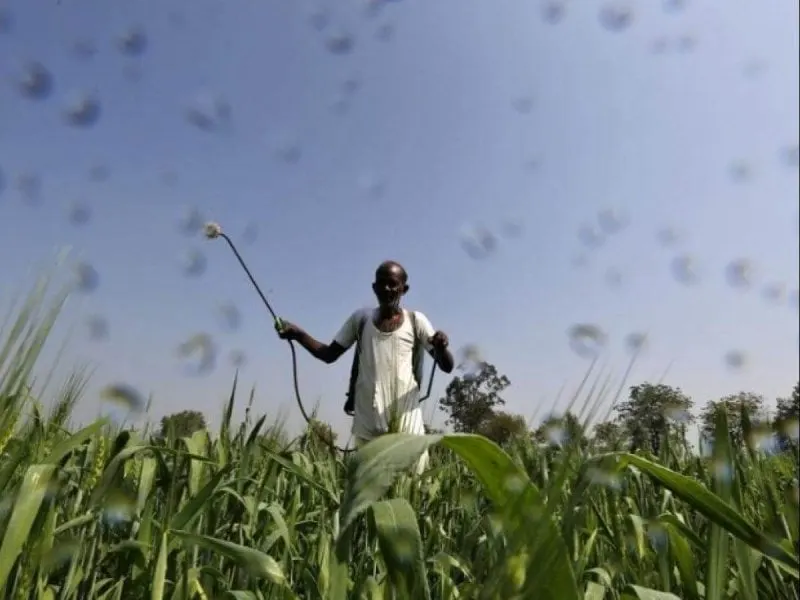Seed Speaks Video: Getting beyond the myth that synthetic pesticides do more harm than good
Seed Speaks Video: Getting beyond the myth that synthetic pesticides do more harm than good


With questions about sustainability and safety from consumers, and efficacy and longevity from farmers, pesticides have many questions that need answers.
A recent report by the U.S. Food and Drug Administration found that 98.7% of domestic food for human consumption were compliant with federal standards and no pesticide residues at all were found in 42.4% of domestic food. Regardless of federal inspections, doubts about safety in the food supply persist.
This week on Seed Speaks, Seed World Group Editorial Director Sonja Begemann is joined by pesticide experts from across North America. Joining the panel is:
- John Jamieson, president and CEO of the Canada Centre for Food Integrity (CFFI). He joined CCFI after several leadership roles within Canadian ag organizations. Jamieson is also a professional agrologist and certified nutrient management planner.
- Fred Whitford, coordinator of Purdue Pesticide Programs. Whitford has co-authored five books, spoken at thousands of events and field days and worked as a regulator before moving to Purdue University.
- Aaron Hager, associate professor and University of Illinois (U of I) Extension weed scientist. He’s worked U of I for almost 30 years where he specializes in weed science, namely the evolution of various weed species. In that same research, he’s developed a strong understanding of herbicide systems.
This is an excerpt. Read the original post here.
The GLP featured this article to reflect the diversity of news, opinion and analysis. The viewpoint is the author’s own. The GLP’s goal is to stimulate constructive discourse on challenging science issues.

 | Videos | More... |

Video: Nuclear energy will destroy us? Global warming is an existential threat? Chemicals are massacring bees? Donate to the Green Industrial Complex!
 | Bees & Pollinators | More... |

GLP podcast: Science journalism is a mess. Here’s how to fix it

Mosquito massacre: Can we safely tackle malaria with a CRISPR gene drive?

Are we facing an ‘Insect Apocalypse’ caused by ‘intensive, industrial’ farming and agricultural chemicals? The media say yes; Science says ‘no’
 | Infographics | More... |

Infographic: Global regulatory and health research agencies on whether glyphosate causes cancer
 | GMO FAQs | More... |

Why is there controversy over GMO foods but not GMO drugs?

How are GMOs labeled around the world?

How does genetic engineering differ from conventional breeding?
 | GLP Profiles | More... |

Alex Jones: Right-wing conspiracy theorist stokes fear of GMOs, pesticides to sell ‘health supplements’


 Four ways to strip carbon out of agriculture and limit farming’s climate impacts
Four ways to strip carbon out of agriculture and limit farming’s climate impacts Confronting the elephant in the human biodiversity room — the explosive issue of IQ
Confronting the elephant in the human biodiversity room — the explosive issue of IQ Viewpoint — Fact checking MAHA mythmakers: How wellness influencers and RFK, Jr. undermine American science and health
Viewpoint — Fact checking MAHA mythmakers: How wellness influencers and RFK, Jr. undermine American science and health Viewpoint: Video — Big Solar is gobbling up productive agricultural land and hurting farmers yet providing little energy or sustainabilty gains
Viewpoint: Video — Big Solar is gobbling up productive agricultural land and hurting farmers yet providing little energy or sustainabilty gains Trust issues: What happens when therapists use ChatGPT?
Trust issues: What happens when therapists use ChatGPT? The lingering pandemic: The chronic toll of untreatable long COVID
The lingering pandemic: The chronic toll of untreatable long COVID Fighting deforestation with CO2: Biotechnology breakthrough creates sustainable palm oil alternative for cosmetics
Fighting deforestation with CO2: Biotechnology breakthrough creates sustainable palm oil alternative for cosmetics California, Washington, Oregon forge immunization alliance to safeguard vaccine access against federal undermining
California, Washington, Oregon forge immunization alliance to safeguard vaccine access against federal undermining Genghis Khan has over 16 million descendants today — but he’s not alone. 10 other men have massive genetic legacies
Genghis Khan has over 16 million descendants today — but he’s not alone. 10 other men have massive genetic legacies 30-year-old tomato line shows genetic resistance to devastating virus
30-year-old tomato line shows genetic resistance to devastating virus
